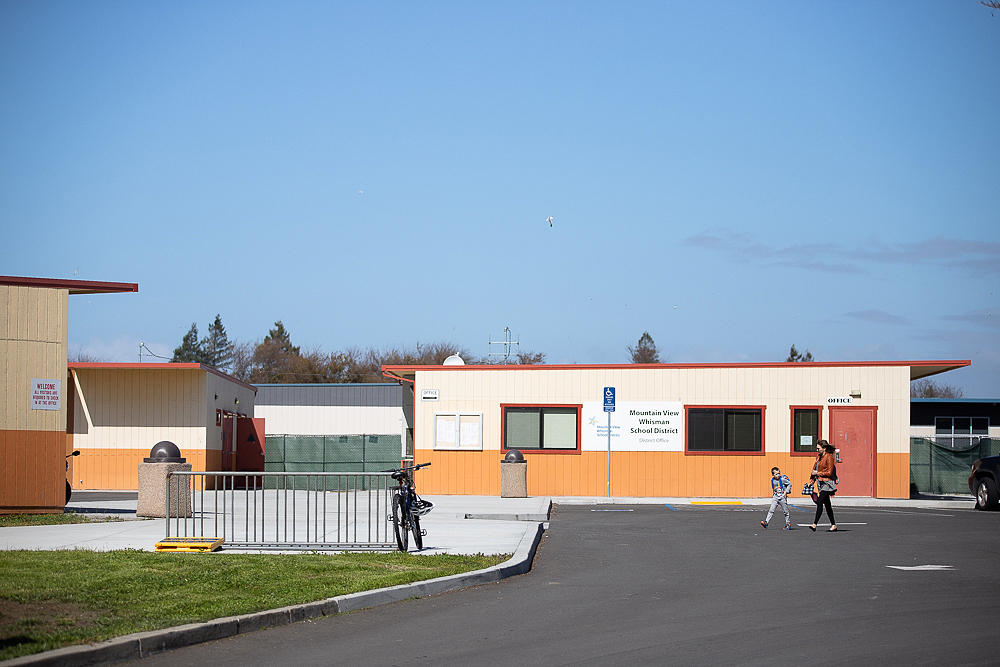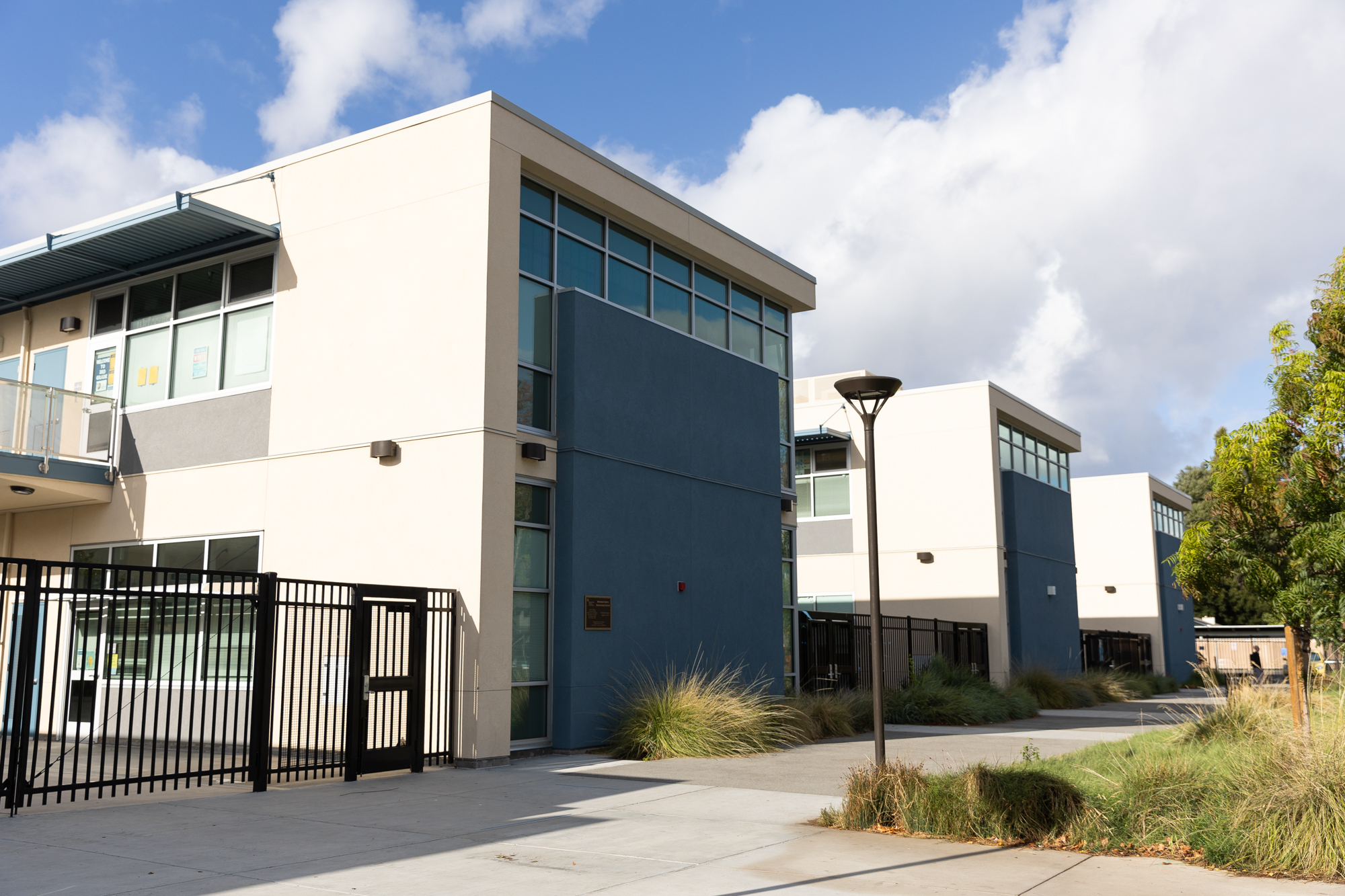The Mountain View Whisman School District's 2022-23 budget projects that its reserve levels will drop over the coming three years as the district operates at a deficit, but administrators say that outlook is based on a set of very conservative budget assumptions that may undershoot the true amount of revenue the district ends up bringing in.
The school board approved the budget 4-0 at a June 16 meeting, with Chris Chiang abstaining because of connection issues that prevented him from voting during the virtual meeting. Technical difficulties also meant that the first portion of the June 16 meeting was not recorded, but board president Laura Blakely confirmed the vote to the Voice.
The budget projects that the district will spend more than it takes in during each of the next three school years, with reserves dropping from 25.1% in the 2022-2023 school year to 19.7% the following year and 12.7% in the 2024-2025 school year.
That's below the amount set out in a 2018 board resolution, which calls for the reserve level to fall between 17% and 20% in the third year of any budget. At a June 15 meeting, board member Ellen Wheeler questioned why the budget shows reserves dipping below that level.
Interim Chief Business Officer Ron Wheelehan, who is filling in for Rebecca Westover while she is on leave, said that the deficit spending in the budget is partially because of a set of conservative assumptions that the district is making about property tax growth.
Mountain View Whisman is largely funded by local property taxes, accounting for roughly 70% of its general fund revenue. That means that when the assessed value of properties increases, the district correspondingly takes in more money.
The budget assumes 3% growth in assessed values next school year and in the school year after that, followed by 2% in the 2024-2025 school year. Superintendent Ayinde Rudolph called that an "extremely conservative projection," noting that the assessed value of local homes, on which property taxes are based, is generally far below the amount they would sell for today. When a home is sold, the assessed value is reset, generally leading to more property tax revenue.
In the 2018-19 year assessed values grew by 6%, then by 8.4% in 2019-20, 11.3% in 2020-2021 and 6.7% in 2021-22, Wheelehan told the Voice. He noted that despite these past increases, it is considered best practice to use conservative growth projections to "avoid a sudden budget shortfall."
Wheelehan and Rudolph also both noted at the June 15 board meeting that there are some signs the housing market may be cooling off as interest rates rise, making a conservative budget approach particularly prudent.
"We should be good and weather the storm that may be coming," Rudolph said. "But again, that requires us to be extremely conservative with our projections, which we've been for the last couple of years."
On the expense side, the budget also includes a 4% raise for teachers and other staff in each of the next two school years. That's the result of multi-year union contracts that the district signed earlier this year. The teachers' union negotiations were contentious this past year, with an outside mediator called in before the agreement was signed in April. The deal with the union representing non-teaching staff was approved in February.
Pay increases are only included in the budget when a formal deal is reached. Rudolph said that when the district agrees to a multi-year deal, that means the costs are included in the budget up front.
"I like being conservative, but I'm glad we're paying our teachers well," Blakely said.
Next year's budget also includes cost increases for certain programs. The district is adding an instructional aid in each kindergarten and first grade classroom at Mariano Castro Elementary School, for a total cost of $485,000. The contract with the nonprofit Community Health Awareness Council (CHAC) for mental health services is increasing from $396,000 to $624,000.
The district is also budgeting for higher costs for insurance, utilities and contributions to the state employee pension program.
California is requiring school districts to start offering transitional kindergarten classes in the fall, with programs expanding annually until all 4-year-olds are eligible by the 2025-26 school year.
Mountain View Whisman already offers some transitional kindergarten classes, but will be scaling up its program over time. In the next three school years, the district expects to spend roughly $2.5 million on the effort.
The district has also been allocated roughly $17.7 million in state and federal COVID-19 related funding since the pandemic began, Wheelehan told the Voice. The district has spent about $7.5 million and intends to spend the rest over the next three years. The remaining funds will be rolled over and included in the first interim report that comes to the board in December, Wheelehan said.
The budget that the school board approved last month doesn't include additional funding that California just allocated to schools, because the statewide budget wasn't finalized when the school board voted on June 16. Gov. Gavin Newsom signed the state budget on June 30.
Among the items the state approved is money to fund a universal meals program, where any student can get free breakfast and lunch regardless of family income, Wheelehan told the Voice. Mountain View Whisman's budget currently assumes that the money for this required expansion will come from the district's existing funding.
With the state picking up the tab, the adjustment will be included in a 45-day budget revision that Wheelehan said the district plans to bring to the school board in August.
Although board members raised some questions about the deficit spending that the budget is projecting, the trustees ultimately were supportive of the plan.
"I am also very thankful for our conservative approach, because we do live in uncertain times and there are some financial storms on the horizon that it's going to take being fiscally prudent to weather," board member Devin Conley said.




Comments
Registered user
Cuesta Park
on Jul 1, 2022 at 6:39 pm
Registered user
on Jul 1, 2022 at 6:39 pm
What I have found 'socially disturbing' about the excess reserves at MVWSD is that they have more often than not - been increased by underspending on instructional programs for "most needy" students. Maybe this will taper off?
By continually underestimating the property tax revenues (compounded by 3 years) 'the sky is falling, or gonna fall' seems to be the current Board's cry. It never happens - the MVWSD uses under-projection compared to the City of Mountain View. Wheeler still dosn't get the numbers - the goal is a 17%-20% Reserve / because that doesn't buy instruction - it just gets less than 1% interest from the County. [the district had to sign a special letter - again - on why they are socking away such an excess!]
All regular districts have a state mandate 10% max (Education Code (EC) Section 42127.01(e). Santa Clara - a district like ours, has Bd.Policy of 10% total (BP 3100.1).
Registered user
another community
on Jul 3, 2022 at 2:06 pm
Registered user
on Jul 3, 2022 at 2:06 pm
The county assessor has the property tax values for next year and has already released them. They say MVWSD's valuation rose 7%.